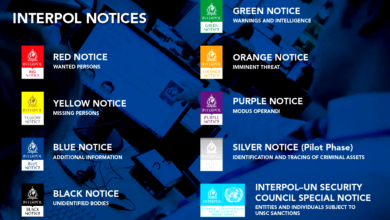Healthcare Data Breaches: What to Do if Your Medical Info Is Exposed

Healthcare Data Breaches, In today’s digital age, where technology plays a significant role in healthcare, the protection of personal data is of utmost importance. However, despite robust security measures, healthcare data breaches still occur, leaving individuals vulnerable to the exposure of their sensitive medical information. If you find yourself in such a situation, it is crucial to know what steps to take to mitigate the potential risks and safeguard your privacy. This article will guide you through the necessary actions to be taken if your medical information is exposed in a healthcare data breach.
In our interconnected world, healthcare organizations store vast amounts of sensitive patient data electronically. Unfortunately, this data is not immune to security breaches. A healthcare data breach occurs when unauthorized individuals gain access to medical records, exposing personal information, such as names, addresses, Social Security numbers, and even medical conditions. When faced with such a breach, it’s essential to act swiftly and responsibly to safeguard your personal information and minimize potential harm.
Read More: Exploring the Evolution of Healthcare Systems In 2023
Understanding Healthcare Data Breaches
A healthcare data breach refers to the unauthorized access, use, or disclosure of sensitive patient information within a healthcare organization’s network. Breaches can occur due to various factors, including cyberattacks, employee negligence, lost or stolen devices, or inadequate security protocols. The compromised data can be used for identity theft, insurance fraud, blackmail, or other malicious purposes. Being aware of the potential consequences can help you understand the gravity of the situation and take appropriate action.

Recognizing the Impact
The exposure of your medical information can have severe implications for your privacy, financial well-being, and even your physical health. Hackers may exploit your personal information to commit identity theft, opening credit accounts or applying for loans in your name. They may also target your medical insurance, leading to false claims and potential denial of legitimate coverage. Moreover, the leakage of sensitive health details can be emotionally distressing, eroding trust in the healthcare system. Understanding the impact can motivate you to act promptly and protect yourself effectively.
Immediate Steps to Take
If you discover that your medical information has been compromised in a data breach, it is crucial to take immediate action. Start by remaining calm and following these steps:
- Document the Incident: Keep a record of the details surrounding the breach, including dates, times, and any relevant information that might assist in the investigation.
- Change Passwords: Immediately update the passwords of your accounts linked to the healthcare organization, including patient portals and online services.
- Monitor Financial Accounts: Regularly monitor your bank accounts, credit cards, and insurance statements for any unauthorized activity or suspicious transactions.
- Educate Yourself: Stay informed about the breach, the potential risks involved, and the steps the healthcare provider is taking to address the situation.
Contacting the Healthcare Provider
Healthcare Data Breaches, Once you have taken immediate action, it is essential to contact the healthcare provider directly to report the breach and inquire about the steps they are taking to address the situation. Here’s what you need to do:
- Contact the Privacy Officer: Reach out to the healthcare provider’s privacy officer or the designated point of contact for data breaches. Request information about the extent of the breach and how it may affect your personal information.
- Ask about Notifications: Inquire about the notification process they will follow to inform affected individuals. This may include sending letters, emails, or establishing a dedicated hotline.
- Seek Clarification: If you have any concerns or questions about the breach, do not hesitate to seek clarification from the healthcare provider. Understanding the situation will empower you to protect yourself better.
Monitoring Your Accounts
Healthcare Data Breaches, After a healthcare data breach, closely monitoring your financial and medical accounts is crucial. By doing so, you can detect any suspicious activity promptly. Here are some important steps to take:
- Check Account Statements: Regularly review your bank, credit card, and insurance statements for any unauthorized transactions or charges.
- Monitor Explanation of Benefits (EOB): Scrutinize EOBs provided by your health insurance company. Look for any discrepancies or claims for services you did not receive.
- Enroll in Credit Monitoring: Consider enrolling in a credit monitoring service that provides real-time alerts for changes to your credit report. This can help you detect fraudulent activity promptly.

Placing Fraud Alerts and Security Freezes
Healthcare Data Breaches, To provide an additional layer of protection for your personal information, you can place fraud alerts and security freezes on your credit reports. Here’s what you need to know:
- Fraud Alerts: Contact one of the major credit bureaus—Equifax, Experian, or TransUnion—and request a fraud alert be placed on your credit file. This alert notifies potential creditors to take extra precautions when verifying your identity.
- Security Freezes: Consider placing a security freeze on your credit reports, which restricts access to your credit information. This prevents anyone, including identity thieves, from opening new accounts in your name.
Reporting the Breach
Healthcare Data Breaches, In addition to contacting the healthcare provider, it is important to report the breach to the relevant authorities. Reporting the incident can contribute to the investigation and help prevent further breaches. Here’s what you should do:
- File a Complaint with the OCR: If you are in the United States, file a complaint with the Office for Civil Rights (OCR), a division of the Department of Health and Human Services (HHS). They handle investigations related to healthcare data breaches.
- Contact Local Authorities: If you suspect that the breach may lead to identity theft or other criminal activities, contact your local law enforcement agency and provide them with all the relevant information.
Seeking Legal Assistance
Healthcare Data Breaches, Depending on the severity and consequences of the breach, you may consider seeking legal advice. An experienced attorney specializing in data breaches can help you understand your rights, guide you through the legal process, and explore possible avenues for compensation. Consulting a legal professional can provide peace of mind during a challenging time.
Protecting Yourself in the Future
Healthcare Data Breaches, While you cannot control external data breaches, you can take proactive steps to protect yourself in the future. Here are some preventive measures:
- Strong Passwords: Use strong, unique passwords for all your accounts and consider employing a password manager to securely store them.
- Enable Two-Factor Authentication: Enable two-factor authentication (2FA) whenever possible. This adds an extra layer of security by requiring a second verification step during login.
- Stay Informed: Stay updated on the latest cybersecurity best practices, such as recognizing phishing emails, avoiding suspicious websites, and being cautious about sharing personal information online.
Healthcare Data Breaches, Conclusion
Experiencing a healthcare data breach can be distressing, but by taking immediate action and following the steps outlined in this article, you can protect your personal information and minimize potential harm. Remember to remain vigilant in monitoring your accounts, reporting the breach, and seeking legal assistance if necessary. By taking proactive measures and staying informed about cybersecurity, you can safeguard your privacy and maintain trust in the healthcare system.
Read More: MEDICAL MALPRACTICE ATTORNEY IN NYC, 10 Best Points to Know

FAQs
- What is a healthcare data breach?
A healthcare data breach refers to the unauthorized access, use, or disclosure of sensitive patient information within a healthcare organization’s network.
- How can a healthcare data breach affect me?
A healthcare data breach can have severe implications for your privacy, financial well-being, and emotional well-being. It can lead to identity theft, insurance fraud, and emotional distress.
- What immediate steps should I take if my medical information is exposed in a data breach?
Start by documenting the incident, changing passwords, monitoring financial accounts, and educating yourself about the breach.
- Should I contact the healthcare provider if my medical information is exposed?
Yes, it is important to contact the healthcare provider to report the breach and inquire about the steps they are taking to address the situation.
- How can I protect myself from future data breaches?
You can protect yourself by using strong passwords, enabling two-factor authentication, and staying informed about cybersecurity best practices.











